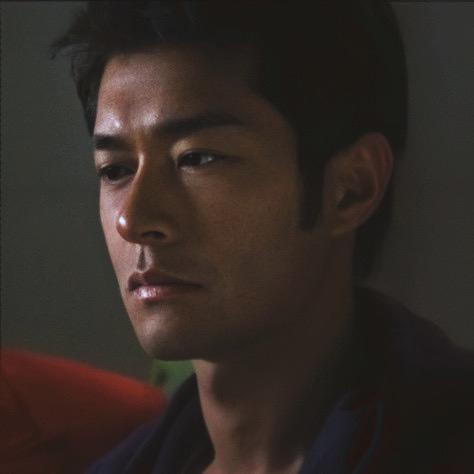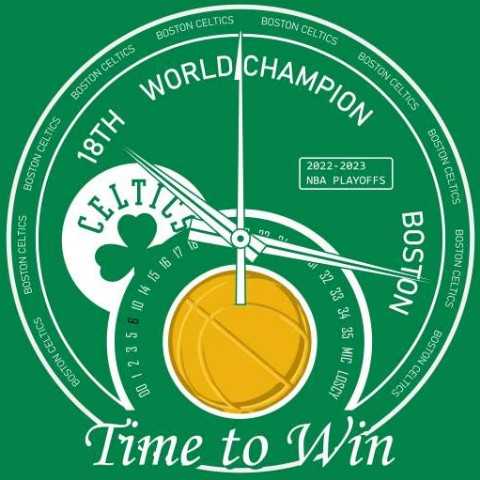虎扑体育网
 搜我想看
搜我想看拉塞尔75大巨星档案
英文摘自国外NBA官网Archive 75:Bill Russell
作者:Todd Spehr
侵删
其实很难量化比尔拉塞尔对比赛的影响力到底有多大。在19世纪五六十年代的时候,技术统计非常有限,那些数据统计无法向我们展示比赛的全貌。在那个年代,他的得分和篮板是十分惊人的。但是这也是我们唯一了解的。我们并不了解盖帽或篮板等其他防守数据,只给我们留下了难以证实的传闻。而这些传闻看起来都让人难以置信。直到现在,对于拉塞尔数据统计的说法也从来没有被他本人核实过。
之前,比赛的风格是简单且原始的。只要比其他队伍获得更多分数就可以带走胜利。然后相比于进攻更加注重防守的拉塞尔出现在了银幕上。他决心阻止所有胆敢挑战他的防守的球员。在NBA75年的历史长河中,他总是在逆流而上,他不仅是一个球员,一个常胜将军,他也是一位民权斗士。
那些因拉塞尔没有彰显自己统治力的数据而感到不满的人应该明白,对于他来说只有一个重要的数据:11,那是他13年职业生涯所获得的冠军数量。对于拉塞尔个人的伟大,在世界上有一个人最先欣赏到了这一点,那个人就是红衣主教里德.奥尔巴赫。
在之后的十年间,他们共同创造了历史。
有多少球员会考虑对手的视力?有多少人会破译他们的对手看到了什么并将做出什么相应的反应?又是谁创立了不基于体型或运动能力而是基于心理状态与施加压力的比赛?那么来看看比尔拉塞尔通过解释他独一无二防守方式证实他是一个绝对的篮球天才。
拉塞尔的强大之处在于他对深层次比赛的理解 ——记分牌之外的比赛,那是影响深远的。这是头脑之间的较量:心理游戏。他相信篮球中的因果关系;封盖对手的投篮不仅会改变那次尝试,还会改变随后的尝试。这可能会使对手在这个半场、比赛的剩余时间——甚至是季后赛系列赛的剩余时间——都不再进行这种尝试。拉塞尔深谙这一点,了解这种力量,并将其作为他行动的主要动机。
这里拉塞尔将这种对于对手的心理冲击描述为他在球场上造成的仅有的影响。
毕加索教授现代艺术,爱因斯坦教授相对论,而拉塞尔教授篮板和盖帽。在奥尔巴赫的帮助下,拉塞尔完全掌握了篮球的两个基本要素。
前面我们已经听到拉塞尔解释了他的比赛方式——现在,让我们看看吧。 1963年NBA总决赛G6——凯尔特人队对阵湖人队。当时的情况是:拉塞尔打满了48分钟,得到12分,抢下24个篮板并获得9次助攻。但请记住,这些数字并不能完全概括他的表现。当然,他打得非常出色,波士顿连续第五次夺得冠军。但乐趣不仅仅在于观看拉塞尔的填满数据栏——而是在于观察他在球场上的每一刻低调的才华。当拉塞尔盖帽时——这段视频有七个盖帽——他完全掌控了比赛。他持球背对着篮筐,他的本能不是寻找队友而是摧毁对手的防守。但是,当队友在他周围跑位时,他会首先找到他们,作为凯尔特人王朝的核心。当湖人队拿到球时,他们看到他潜伏着。当然,他们有机会拿下一场比赛,但拉塞尔会将机会扼杀在摇篮里。
拉塞尔作为一名球员的使命很简单:赢得每年的每一场比赛。通过这么做他达成了任何职业运动都无法匹敌的结果,但更值得注意的是,拉塞尔知道这是可能的。他相信他可以凭借自己坚定的意志力决定任何比赛的结果。很多时候,他正是这样做的。
似乎很容易猜到对他来说最重要的成就——也许是他的第一个冠军,也许是他的最后一个冠军——但有些时刻可能会让我们感到惊讶。以 1963 年在洛杉矶举行的 NBA 全明星赛为例。拉塞尔被评为全明星MVP,并且他所在的东部获胜。但这是因为他父亲的出现,以及他前一天发表的评论,这些激发了拉塞尔的 MVP 表现。在一场由世界上最好的球员组成的比赛中,比尔·拉塞尔决定要打出卓越表现。
当拉塞尔发声时,人们都会认真聆听。对于任何人群——运动员、名人、政治家——他都属于少数人。他举足轻重,有尊严,并提供观点。无论是作为球员还是教练,无论话题是关于他的球队还是社会,他都是一个深刻的思考者。拉塞尔知识的广度在这本 60 年代对他的采访汇编中得到了充分展示
拉塞尔的话从来没有像讨论美国公民权利时那样举足轻重。他的职业生涯与国家动荡时期重合,而拉塞尔解决不平等的方法源于他母亲在小时候教给他的一个简单道理:永远为自己挺身而出。他以第一手经验的力量,以深刻的见解,以设身处地的关心进行发声。拉塞尔坚定的维护所有人的权利和尊严。他不仅是他所从事的这项运动的冠军,而且也是公民权利的拥护者。这是一项在他一生成就中屹立不倒的遗产,最终他借此在 2011 年荣获总统自由勋章。
当恶战来临时拉塞尔就会提升到最佳状态。没有人曾表现出能够比肩威尔特张伯伦的侵略性。按理说,NBA历史上最伟大的球员间的对抗可以简单地描述为:最伟大的进攻球员对抗最伟大的防守球员。这项运动还能更戏剧化吗?这些伟大球员在同一个时代,以这样的频率进行对位——从 1959-69 年达到惊人的 142 次——说明了宿命的存在。
虽然他们的比赛方式差异很大,但这只会让他们的决斗更加激动人心。张伯伦压倒性的身体素质和高不可攀的记录;拉塞尔微妙的动作和提升队友水平的决心。从字面上看,这是跨越整个时代的伟大战役
在1997年,联盟为成立50周年举办了庆典,拉塞尔和张伯伦再一次坐在一起,像往常一样,结果令人着迷。
在 1961-62 赛季,张伯伦场均得到 50 分,奥斯卡罗伯逊场均得到三双。然而,当时作为MVP投票员的球员群体最终把拉塞尔排在榜首,他获得的票数远高于第二名。这次的结果最终也被证明是有道理的:拉塞尔在赛季末带领波士顿队再次夺得总冠军,在与湖人队的抢七大战中,他打出了也许是他最伟大的一场比赛——砍下了30 分和 40 个篮板。请花点时间理解这些数字。
1962 年世界上最伟大的篮球运动员是什么样的?正如约翰尼莫斯特介绍的那样,拉塞尔展示了他的一些篮板和扣篮技巧。
对于拉塞尔和他的凯尔特人来说,处于劣势的一方的感觉并不熟悉。尽管在前 12 个赛季中赢得了 10 个冠军,但波士顿在 1969 年发现自己处于这个位置,这是拉塞尔作为球员兼教练的第三个赛季。在获得东部赛区第四个也是最后一个季后赛席位后,似乎不可能再次夺冠了。然而,凭借计谋和经验,凯尔特人队再一次进入了冠军系列赛。等待他们的是由埃尔金·贝勒、杰里·韦斯特以及新近转会的张伯伦领衔的洛杉矶湖人队。从表面上看,实力似乎不匹配;终于,湖人有机会扭转十年的煎熬。波士顿在整个系列赛中似乎落后一步,迅速以 0-2 落后,凭着萨姆·琼斯的打板绝杀才避免了比分成为 3-1 ,最终与洛杉矶湖人鏖战到总决赛的第 7 场比赛。如果凯尔特人队输了,如果这真的是拉塞尔的结局,至少这一切都会有尊严地结束。
比尔·拉塞尔的最后一场比赛是在 1969 年 5 月 5 日进行的。恰巧,比赛的结果将决定本赛季的冠军归属,此情此景下,拉塞尔打出了他生涯最强的比赛表现。当被要求描述他对获胜的想法时,拉塞尔说:“一定程度的紧张能够在重要比赛中发挥作用。,并且这对每个人每个人都有影响。对于一些球员来说,这让他们变得更好,而对于另一些的球员来说,紧张使他们孱弱。我很幸运,对于我来说——紧张是有帮助的。”
在13个赛季后,他没有逾期逗留,也没有过早离开。他屹立于联盟之巅已经累月经年,而他已巅峰不再,不过此时他仍然能够为凯尔特人王朝献上最后一舞。这位职业体育史上最伟大的赢家的最后一招,就是提升身边队友的竞技水平。对于整个球队,波士顿再次加冕冠军。对于拉塞尔来说,他从没想过其他的结果。
原文:
It has never been easy to quantify Bill Russell’s impact on the game. With limited box scores from the 1950s and 60s,the statistics will never tell the full story. His scoring and reboundingnumbers are impressive for that era, but they are all we have. We have no clue
on blocks or other defensive stats, leaving us with only anecdotal evidence
that is at times hard to fathom. The estimates don’t seem real. To speak of
Russell in statistical terms, then and now, has never done him justice.
The style of the game upon his arrival in 1956 was simplistic and primitive: Score more
points than the other team andyou will leave as the victor. Then Russell flipped the script with a focus on defense instead of offense — determined to stop any scorer who dared to
challenge him. He swam upstream in every way — there’s never been his equal as
a player, a winner, and a fighter for civil rights in the 75-year history of the NBA.
Those dissatisfied there isn’t a single individual stat to best capture his domination
should understand the only number that mattered to him resides in plain sight: 11. The number of championships he won during his 13-year career. As for his individual greatness, there was one man before all others who understood it first, who appreciated it most. That
man was Red Auerbach.
Together, for the next decade, the two would create history.
How many players consider the eyesight of their opponent? How many decipher what their opponent can see and then react accordingly? Who builds their game around not size
nor athleticism, but psychology and intimidation? If this doesn’t make sense, then listen to Bill Russell prove he’s a certifiable basketball genius as he explains his unique,
one-of-a-kind approach to defense.
What’s fascinating about Russell is his understanding of the secondary game — the game that resides beyond the scoreboard — was immense. It was the contest played between the ears: The mental game. He believed in cause-and-effect basketball; blocking an opponent’s shot would not only alter that attempt but the subsequent ones, too. It could
render that opponent useless for a half, the rest of the game — even the
remainder of a playoff series. Russell knew it, understood its power, and used
it as his principal motivation.
Here, Russell describes the psychological impact his mere presence on the floor created.
Picasso teaching modern art. Einstein teaching the theory of relativity. Russell teaching rebounding and blocked shots. With Auerbach’s help, here Russell breaks down the basics of the two elements of basketball he mastered.
So far, we have heard Russell explain the way he played — now, we get to see it. Game 6 of the 1963 NBA Finals — Celtics at Lakers. The spoiler is this: Russell plays all 48 minutes, scores 12 points, grabs 24 rebounds and dishes nine assists. But remember, the numbers don’t fully capture him. He plays fantastic, of course, and Boston claims its fifth
consecutive title. But the fun isn’t in just watching Russell fill up a box
score — it’s in observing his understated brilliance every moment on the court.
When Russell blocks a shot — and this video has seven of them — he does so with
control. With his back to the basket and ball in hand, his instinct is to not
seek and destroy. Instead, he looks first for his teammates as they move around
him, serving as the epicenter of the Celtics’ universe. When the Lakers have
the ball, they see him lurking. They can make a play, sure, but it comes with
the risk Russell will disrupt it before it begins.
Russell’s mission as a player was simple: win every game of every year. And while that approach produced results that will never be equalled in any professional sport, what’s
even more remarkable is that Russell knew it was possible. He believed he could dictate the outcome of any contest by sheer force of his will. More often than not, he did exactly
that.
It might seem easy to guess the accomplishments that mean most to him — perhaps his first title, perhaps his last — but there are moments that may surprise us. Take the 1963 NBA All-Star Game in Los Angeles. Russell was named Most Valuable Player and the East won. But it was the presence of his father, and a comment he made the day prior,
that sparked Russell’s MVP performance. In a game featuring the best players in
the world, Bill Russell made the decision to be superior.
When Russell spoke, people listened. By any
demographic — athlete, celebrity, politician — he resided in a class occupied
by few. He was measured, dignified, and offered perspective. Whether it be as a
player or coach, whether the topic was his team or society, he was a deep
thinker. The breadth of Russell’s knowledge is on full display in this compilation
of interviews with him during the 1960s.
Russell’s words never carried greater weight than when discussing civil rights in America. His career took place during a tumultuous period in the country, and Russell’s approach to remedying the inequality sprouted from a simple lesson his mother taught him as a young boy: Always stand up for yourself. He spoke with the power of first-hand
experience, with depth of opinion, with genuine thoughtfulness. A fierce
believer in the rights and dignities for all, Russell was not merely a champion
of the sport he played, but of civil rights, too. It’s a legacy that stands
tall amongst a lifetime of achievements and it culminated in his accepting of
the Presidential Medal of Freedom in 2011.
Russell rose to his best when the battle was brought to him. And
nobody brought it with greater force than Wilt Chamberlain. Arguably the
greatest player rivalry in NBA history can be described simply like this: The
greatest offensive player against the greatest defensive player. Does sport get
more theatrical than that? That these immortals played the same position, in
the same era, with such frequency — a staggering 142 times from 1959-69 — says
something about the existence of destiny.
While their approaches to the game differed greatly, it only made
their duels more captivating. Chamberlain’s overwhelming physicality and
unfathomable records; Russell’s subtle movements and determination to raise the
level of his teammates. These were battles, literally, for the ages.
In 1997, with the league celebrating its 50th anniversary, Russell and Chamberlain once
again were side-by-side. As usual, the results were
riveting.
During the 1961-62 season, Chamberlain
averaged 50 points per game and Oscar Robertson averaged what was later termed
a triple-double. Yet the playing fraternity, at the time enlisted as voters of
the league Most Valuable Player award, overwhelmingly placed Russell at the top
of the heap by a margin that was not particularly close. And it proved
justified, too: Russell ultimately led Boston to another championship, and in
the deciding Game 7 against the Lakers he played perhaps his greatest game – 30
points and 40 rebounds. Please take a moment to digest those digits.
What did the greatest basketball player in
the world look like in 1962? As introduced by Johnny Most, here’s Russell
showing off some of his rebounding and dunking skills.
The position of underdog was unfamiliar to
Russell and his Celtics. Despite winning 10 titles in his first 12 seasons,
Boston found itself in that position in 1969, Russell’s third season as a
player-coach. After claiming the fourth and final playoff spot in the Eastern
Division, it didn’t appear another title run was possible. Yet the Celtics, on
guile and experience, somehow navigated their way to another championship
series. Awaiting them, the Los Angeles Lakers, led by Elgin Baylor, Jerry West,
and, dramatically, the newly-acquired Chamberlain. On the surface, it seemed
unfair; finally, a chance for the Lakers to reverse a decade of torment. Boston
throughout the series seemed a step behind, quickly falling down 0-2, needing a
miracle from Sam Jones to avoid a 3-1 hole, and finally forcing Game 7 in Los
Angeles. If the Celtics were to lose, if this indeed was the end for Russell,
at least it would all end with dignity.
Bill Russell’s last game was played May 5,
1969. Fittingly, the outcome of the game would determine the season’s champion,
a scenario Russell had played his greatest games under. When asked to describe
his idea of a winner, Russell once said, “To be able to function in the games
that are important. There’s a certain amount of tension in big games, and
everybody feels it. For some players it makes them better, for some players
that’s debilitating. I was lucky that the things I did — tension was helpful.”
After 13 seasons, he had not overstayed his welcome, nor left too soon. He played just long enough to leave on top, on his terms, when still capable of providing one last example of the Celtic mystique. The last act from the greatest winner in professional sports history was to raise the level of those around him. As a unit, Boston was once again crowned
champions. For Russell, he expected no other outcome.
非英语相关专业,翻译难免有很多问题,敬请指出。
全部回复

生活中不再自卑
· 福建这样的好文,我居然市第一个留言

麻辣无敌绿衫军
· 山东我凯最辉煌的时候
